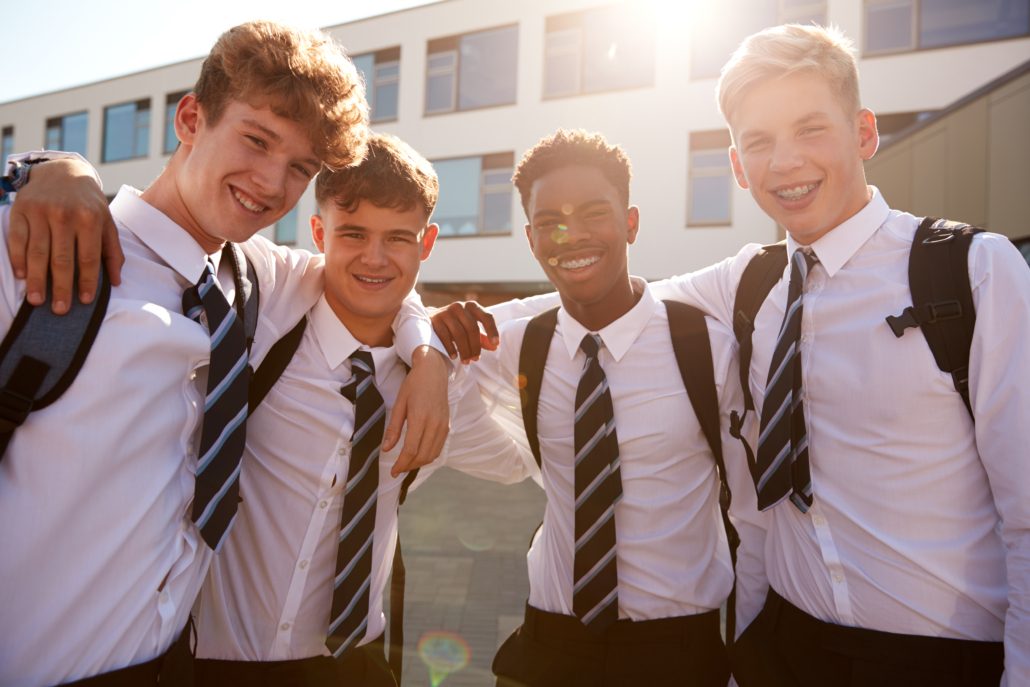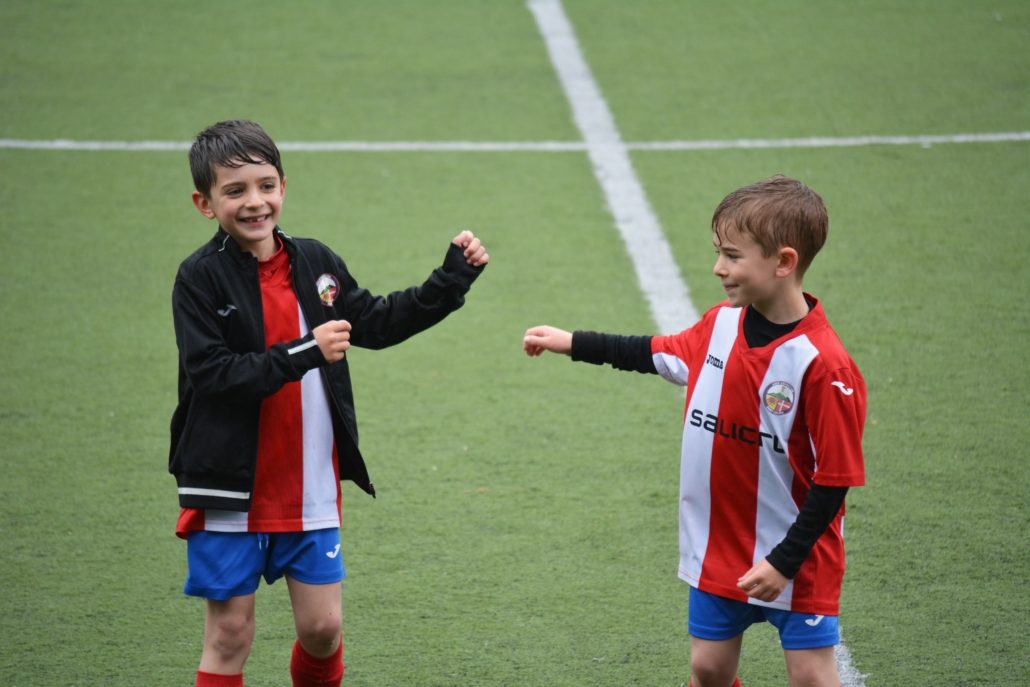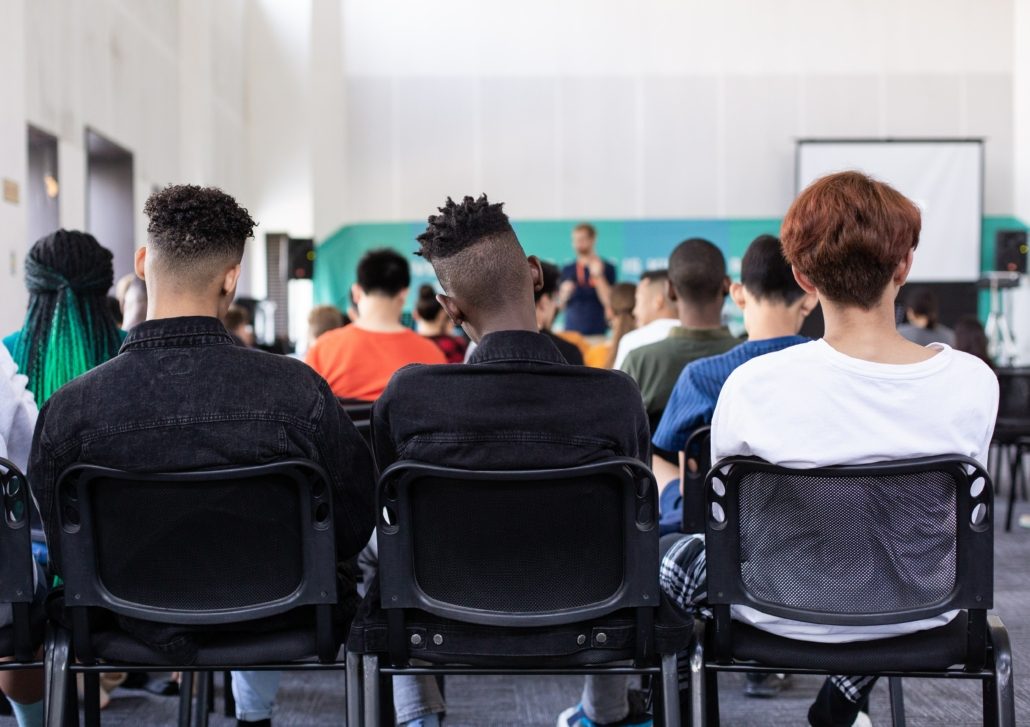 581
581  6 mins
6 mins Our editors independently choose all services featured on The Inspirer.
We earn no affiliate commissions from any of the services featured in our articles.
We were elated. But we had more questions than answers.
“Engaging young men and boys to discover how they could help to create safer and equitable communities by discussing masculinity”?
How does this happen?
Let’s be honest.
When talking about sexual harassment and gender inequality, men are usually painted as part of the problem, not the solution.
And what about the belief system that depicts inclusivity and diversity as a win/lose proposition?
From that standpoint, some men fear being on the losing side – whether it’s in terms of comfort, status, or privilege – when it comes to the idea of gender equality.
Lastly, there’s all that effort that’s required.
Discussing masculinity means examining some deeply-held, unspoken beliefs.
And then actually changing.
It’s a challenging task. It takes vulnerability to dismantle the norms that are imposed onto boys and men.
To find out more, we spoke with Daniel Guinness.
Dan is the Managing Director of Beyond Equality.
As a former professional rugby player with a Ph.D. in Cultural Anthropology from Oxford University with several publications in peer-reviewed journals, Dan has a unique vantage point on the questions of masculinities, changing organizational cultures, as well as mobility within global labor markets.
Dan is also passionate about helping men and boys rethink masculinities and their lives.
He wants men to be equipped with the knowledge, peer support, and community that enables them to practice doing better by women, girls, and non-binary people, by each other, and by themselves.
We knew that half of the battle in talking about masculinity is men getting past their feelings of defensiveness.
And the other half is a minefield of crossed wires, insensitivities, and awkward language.
So how does Beyond Equality move men from talking about gender, equality, masculinities, and gender-based violence to creating respectful, positive, and equitable relationships?
Is this actually something that can be learned?
If so, what’s the secret?

Monkey Business Images / Shutterstock
The interview
Masculinity is a topic very often discussed in broad terms. However, as a real, lived experience, conversations around masculinity often remain restrained.
Beyond Equality, founded in 2013, is an organization that breaks down this barrier.
Their facilitation workshops aim to “Rethink masculinities.”
They work in schools, universities, sports clubs and workplaces, to open up these conversations with men and boys.
On an individual level, these spaces aim to reach personal growth, connection, and support.
Yet, the ripple effect of their work is attaining gender equality, more inclusive communities, and healthier relationships.
“We are very interested in handpicking social norms and cultural constructs to figure out how they are collectively held. We want to examine how they impact individuals – both those who hold these norms and those they marginalize.
To get to the root of the problem (…) we are not trying to give people a list of solutions, we are trying to open spaces for them to explore,” explains Dan.

Adria Crehuet Cano / Unsplash
Dan’s Journey
Dan started his journey of deconstructing masculinity as a young man. “I started out thinking like many people do, that I was doing this for others. I’m in this to make a contribution to the world, to be a good person. In a way, it was a little bit saviorist.”
He was engaged in the topics of social justice, but it wasn’t “sticking” in his life until he realized “there are so many parts in my life where I need this work myself.”
Dan had been a professional rugby player.
“I invested in the hope that one day I would be big, strong, and athletic because I wasn’t when I was younger, and then it happened for me when playing professional sports.”
But a series of accidents led him to have 4 back surgeries. He was ultimately dependent on other people for months.
With a friend, he broke down one day and confessed, “who is going to want me still around? If I am not the guy who can be big and strong and own that space?”
This painful experience was Dan’s “Aha!” moment.
“Once I had a moment to step out of that, I realized how much more everyone is, as individuals. I realized how invested I was in this narrow idea of what my potential was. This idea conforms to societal norms, at least in the physical sense, like lots of these stereotypes of masculinities.”
Going beneath the surface with these topics made him realize why the subject of masculinity is challenging to address.
He realized, “we need to open up new spaces because these are spaces that we haven’t had, or that I hadn’t had and the other men in the organization haven’t had as we were growing up.” He says.
This space is Beyond Equality.
How does it work?
“Discomfort should not be the full stop to the conversation.”
But honestly, talking openly about masculinity with young men and boys is hard.
Performance, the pressures, the taboos, the invisible norms which drive behaviors are all packed into this tricky topic.
“We cannot get anywhere if we cannot be brave enough to look at the wounds that we have as individuals in society. So if that hurts a little bit, if it’s uncomfortable a little bit, we still have to do it. But you can make that easier for people.”
The workshops usually start with games for the participants to use their bodies and be playful.
“That playfulness opens up discursive spaces,” explains Dan.
The facilitators are earnest about making these workshops a safe space. “We are going to be provoking and challenging people, providing a space where they realize that the ways that they previously acted had been harmful to people. (…) And as we start to provoke them, we are always compassionate to them. We know that change is hard. And we allow space to feel those emotions. It’s about making them feel or telling them directly, ‘We are positive about you! We don’t know who you have been in the past, but you don’t need to be part of the problem; you can be part of the solution. This world that is more equitable, safer, more inclusive can also feature you. You can be an important part of that community.'”

Sam Balye / Unsplash
Not an easy feat
“We see this as a big conversation with a lot of strands,” says Dan.
In the example where Beyond Equality intervened in a school to combat sexual harassment, he shares how they come in “knowing that the boys will be going through bullying and peer pressure. They will be insecure about their sexuality, whether they see themselves as straight, gay, or bi, or questioning and figuring it out. And there are mental health issues; there are all sorts of things going on. We offer space to work on that as a whole. Because we believe that those reinforced social norms, these structures of inequalities are damaging for everybody. Not more damaging for people who identify as men, certainly, but also there are things in their lives that have worked out badly because of those norms and expectations.”
Dan confesses that one of the hardest things is that often “the people who have been deeply traumatized and oppressed by these social norms and behaviors of sometimes the same people who are also in the room.”
The solution that Beyond Equality offers?
“Holding that space, for both experiences. Not allowing the people who faced trauma and discrimination to be the learning tool for other people, but provide them with a genuine benefit for being in the room, while at the same time helping other groups of people learn.”
All the while, nothing in the process is ever mandatory.
Beyond Equality only offers a solution, and the choice and agency remain in the participants’ hands.
“If someone has energy and is capable and it is the right place for them to be doing so, we can show them a framework to opening up these explorative conversations.”
What an impact!
Beyond Equality is starting conversations that don’t exist.
By doing so, boys and men from the same social group have the opportunity to shed the veils of social norms and be honest with each other.
These norms can be simple as the topics of conversations they usually talk about or how they behave with one another.
In the workshops, they have the opportunity of putting these aside and sharing about what that means to them.
“I think it’s cool when you get past that initial thing of people wanting to keep up a facade! And they get to a realisation that ‘Oh no! I can be genuine with the people around me, and we can look to solve what is not an easy question sometimes. How can you navigate those social spaces we’ve been creating for years.'”
Beyond Equality creates an excellent space to form a team culture and help people come together. Through the workshops, they are given the tools to create this culture together and the awareness to make it a good one for everyone.
To know more about Beyond Equality
Visit Beyond Equality’s website or Instagram page to get in touch with them or if you want more information on their work.
Feature image: Matheus Ferrero / Unsplash


 Weird Enough - photographer Bob Gore
Weird Enough - photographer Bob Gore https://boesels.at/wp-content/uploads/2020/12/Sabine-und-Roland-4.jpg
https://boesels.at/wp-content/uploads/2020/12/Sabine-und-Roland-4.jpg